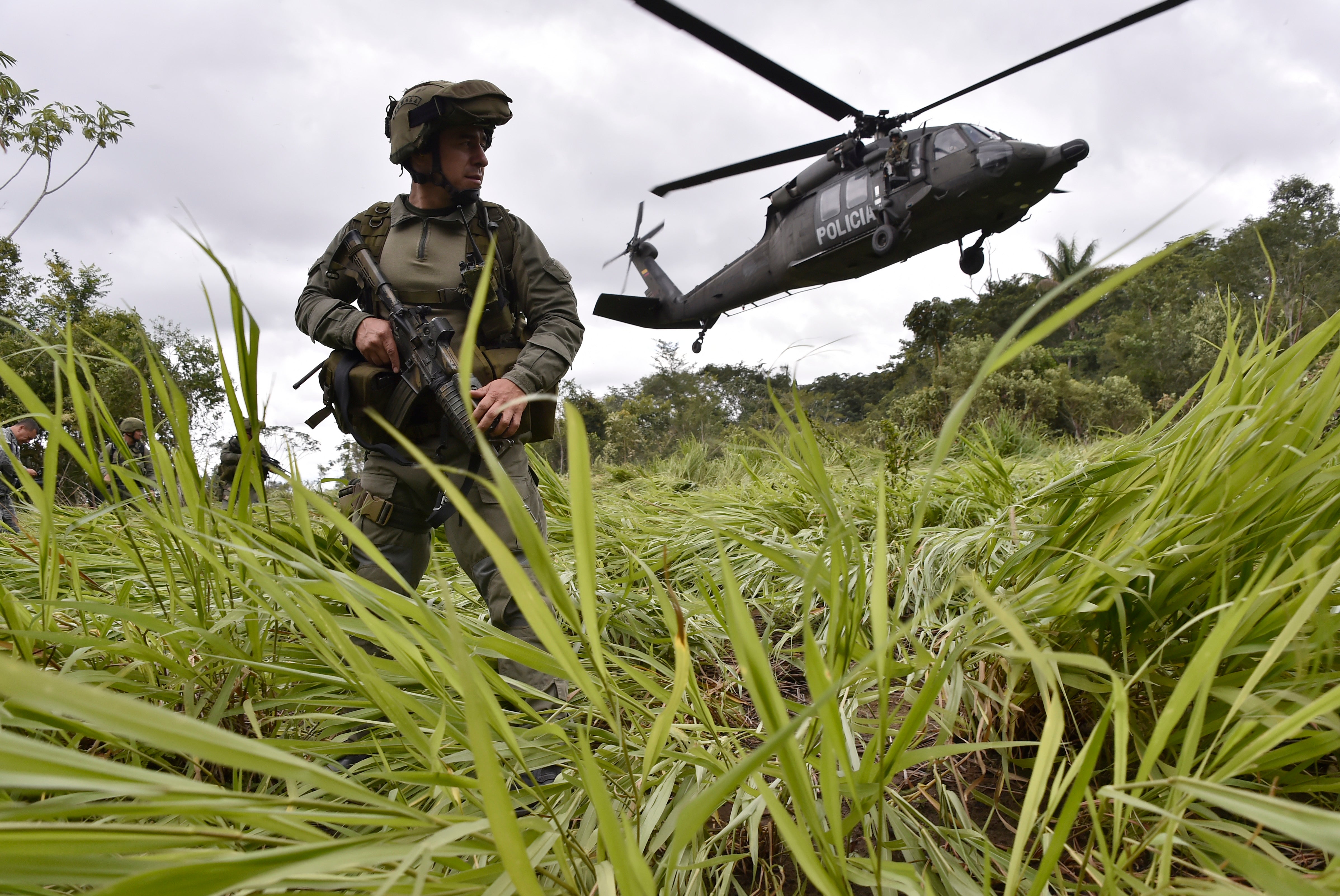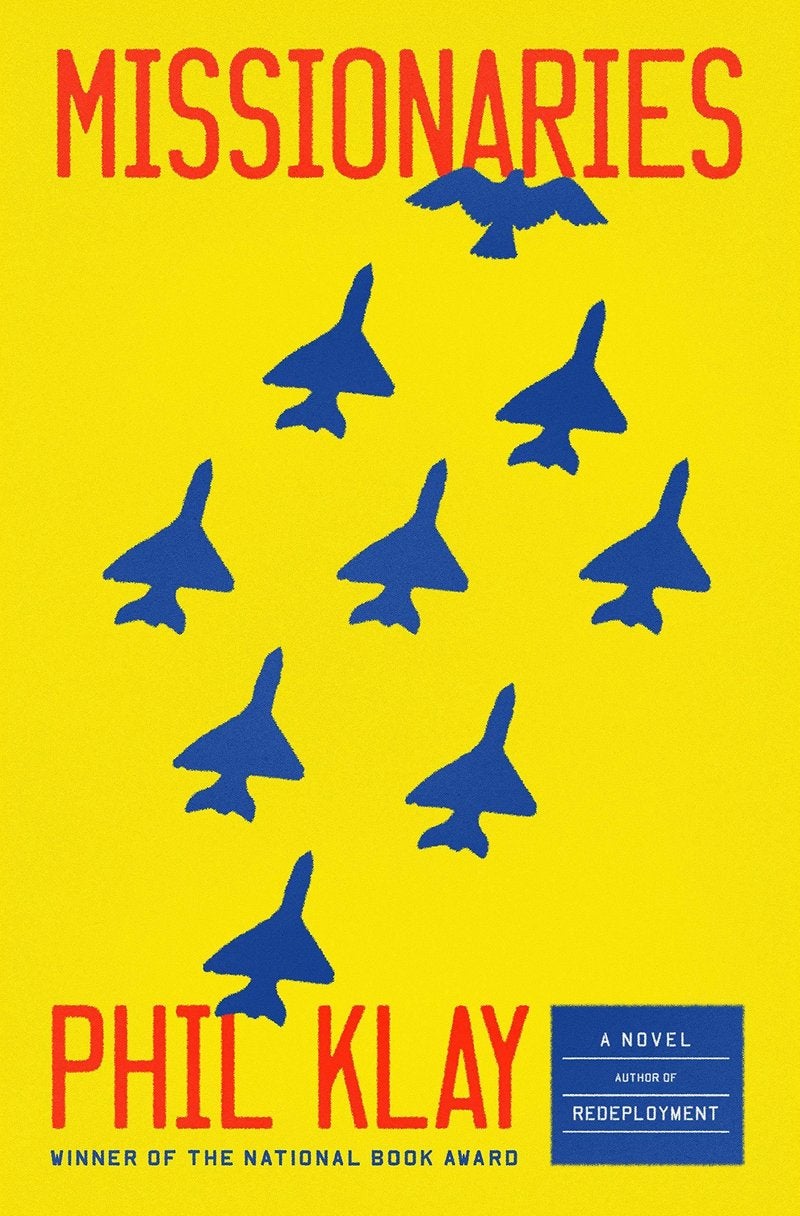Missionaries: Vivid debut novel delves into the vicious world of Colombia’s drug war
US marines veteran Phil Klay delivers a page-turning saga that is powerfully written in its early parts but then shifts to more conventional storytelling, writes Manuel Roig-Franzia

It's hard to picture, or even to contemplate, what it would be like to watch and listen to a man being cut in half by a chainsaw.
It seems that when the blade first bites flesh, the victim – as might be expected – screams in pain. But then the sounds change.
They become “silkier, gentler”, as the National Book Award-winning, short-story author Phil Klay describes it in his debut novel, Missionaries. Just when you're lulled, for a moment, by the hum, you're jarred by the vicious reality of the act, as the sound abruptly turns “grittier, jerkier, coarser”.
The awful scene Klay renders with such vividness takes place in a town called Rioclaro, deep in the recesses of Colombia’s cocaine-growing realm, a tiny place caught in the savage and oscillating hellscape of a succession of competing monsters – communist-sympathising guerrilleros, moralising paramilitary bands and sinister drug traffickers.
Images of fractured bodies, souls and minds run through this frequently gripping and powerfully written but uneven book. Abel – a child who loses his family in the violence that besets another village, and later becomes a paramilitary enforcer – sees himself as a reflection in mirrors held by the people who surrounded him early in life.
“What happens when one by one the people holding those mirrors are taken from you?” he wonders. “It's simple. The person dies. And the bone and meat and blood goes on, walking the earth as if the person still existed, when God and the angels know he doesn't.”

Abel and Lisette, a driven foreign correspondent, are the most compelling figures in a book that also features a cast of characters that includes a US Special Forces liaison, a cynical mercenary and a conflicted Colombian soldier.
Like Abel, Lisette considers herself “broken”, and she sees ruptures everywhere when she first appears as a correspondent based in Afghanistan.
“Walking through a city after a bombing is like coming upon the decayed body of an animal in the woods – enough has been destroyed that you can see the rib cage, a bit of skull and jawbone poking through, the long delicate metatarsals of the feet, enough hints to imagine for yourself the whole skeleton that once structured life,” she says.
Lisette tires of covering a “failing war” that has become the longest conflict in American history.
“So find another war,” a friend tells her. “One we're winning.”
That advice leads her to Colombia, where she's told that the marriage of US know-how and Colombian force has led to progress in the war on drugs.
Sadly, Klay falls into the trap of depicting, in Lisette, a female journalist who sleeps with her source, a trope so tired and divorced from reality that it undermines an otherwise nuanced representation of a reporter in search of truth. (I've been watching the superb Danish series Borgen on Netflix, which also depicts a female journalist in the sack with her source. Note to publishing and broadcast titans: knock it off.)
Lisette and Abel are convincing narrators of their interior lives. When Abel tries to leave his role as a paramilitary intimidator, he muses that he still feels “like a ghost, haunting my body rather than living my own life”. Lisette recognises that she’s losing her edge in Afghanistan, even though she still finds satisfaction when “something awful happens, and I get assigned to do something about it ... to sort through the chaos and find narrative, meaning.”

I wanted more of these reflections, these complexities, but midway through the book, Klay – a US Marine Corps veteran whose short-story collection Redeployment won the 2014 National Book Award for fiction – shifts to more conventional storytelling, with the characters no longer describing themselves to us.
It's perfectly good stuff, a page-turning saga of good guys taking out bad guys, bad guys being bad, and bad guys turned good guys struggling to do the right thing. But it's not the elevated and sophisticated self-examinations that make the opening chapters of the book so special.
Again, Abel is the one who stands out as he navigates the perilous intersection of his new life as a shopkeeper and his old life. As a child, he’d thought the sides were clear – guerrillas were at war with paramilitary groups, and that was it. He learned that the conflict was much more complex. There were villagers, like he'd been, who were coerced into growing coca. But there were drug dealers who worked with guerrillas, and others who worked with paramilitary groups; and drug dealers who worked with both. There were police who “worked for everyone and no one”.
The confused young man became the wary adult, wise to the complicated world in which he’d found a way to thrive, or at least survive, but a victim, as well. Ultimately, Abel and the seemingly all-powerful men who reigned in his homeland, and the soldiers who pursue them, are merely tiny fragments, as he once saw himself, in a larger mosaic.
They are tracked from above by drones monitored on “Kill TV” by American Special Forces and Colombian soldiers. When Mason, the Special Forces liaison to the US embassy watches the show – a real-time image of commandos blasting into the compound of a mid-level narco – he finds “the images oddly endearing, a child's action toys brought to life”.
Missionaries by Phil Klay is published by Canongate Books, £16.99
© The Washington Post
Join our commenting forum
Join thought-provoking conversations, follow other Independent readers and see their replies
Comments
Bookmark popover
Removed from bookmarks